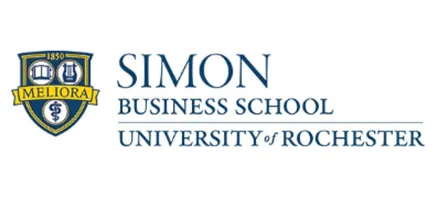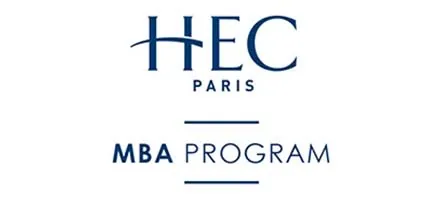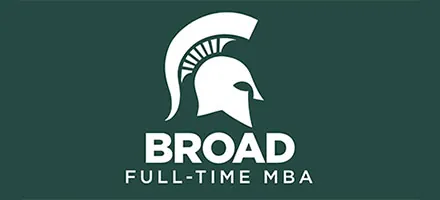With more of our time and attention shifted online, digital marketing has become an essential component of business success. Each year, the world spends a staggering 57 billion hours on a single website: Google. For MBA students, learning how to capture opportunities in this digital environment is more important than ever. This is especially the case in advertising, as we continuously navigate innovations in the digital marketing ecosystem. With the COVID-19 pandemic pushing more people and firms to work in “bits” rather than in “atoms”, the need to move digital is urgent.
Today, Google is a technology behemoth and drives massive profits through online advertising. Last year in 2021, Google’s advertising revenue reached $209.49 billion dollars. But it wasn’t always obvious that Google would dominate. In 2000, it was competitors such as Yahoo that led the search engine market. Since then, the industry has shifted tremendously. Google now handles approximately 2 trillion search queries annually, while Yahoo processes just 33 billion a year.
It’s much more difficult in the present to identify the behemoths of the future. Like the rise of online search engines, advertising will be affected by emerging ideas such as the metaverse and artificial intelligence. But these concepts have yet to mature. This is both a challenge and an opportunity. MBA students hoping to work in marketing, digital strategy, or entrepreneurship will need to have the skillset to shape the future winners in this space.

Avi Goldfarb
SUPERSTARS VS. UNDERDOGS
Professor Avi Goldfarb is an economist and teaches a course called “Digital Marketing” at the Rotman School of Management. In addition to decades of research in this area, he also authored a number of books on topics such as The Economics of Digitization and Prediction Machines: The Simple Economics of Artificial Intelligence. As part of his teaching philosophy, Professor Goldfarb believes that students should be equipped with a framework that helps them understand the opportunities and marketplace of the digital world.
In Goldfarb’s work, the way that the digital marketplace rewards “superstars” and “underdogs” was particularly interesting. The music industry, for example, was disrupted by the lower distribution costs associated with publishing songs online. As a result, the “superstars” would never have to suffer from stockouts or inventory constraints. Additionally, popular songs became even more popular because they were more accessible online, especially when compared to offline alternatives like CDs.
On the other hand, “underdogs” benefit from lowered search costs. Imagine you, as the consumer, are looking for a guide on extreme ironing (it’s a real sport). It’s so obscure that, before the internet, you would have no idea how to find such a guide. On the flip side, the author of this guide would also have no way of finding the right customer to make a sale. With online search engines, it’s so much easier to search for the things we want, no matter its rarity, and producers of niche products are rewarded in such an environment.
For this reason, “middling” products often struggle to compete in the digital world. For new managers, this idea may not be entirely intuitive. But opportunities from these concepts can be identified and incorporated in management decisions. As a result, marketers and product managers may benefit by positioning their products as a “superstar” or “underdog” while avoiding the pitfalls of being anything in between.
HOW GOOGLE GETS PAID
One of my favorite topics in the Digital Marketing class was digital pricing. Most search engine ads are sold through a generalized first-price auction that was adjusted by the “quality” of the keyword. Search engines are only paid when a user clicks one of its ads. In this scenario, “quality” is a measurement for how much ad revenue this keyword would generate for Google and is combined with the bid price to form an ad rank. The bidder with the highest ad rank wins. All this happening in lightning-speed time. This allows for maximum profit through price discrimination, as companies like Google could charge for the individual willingness to pay for each different keyword.
To illustrate this concept, an auction was held in class to demonstrate the process. With the prize being a meal paid for by the professor, it was a fun way to see the concept brought to life. For marketers, search engine ads are often a key component to a company’s digital marketing strategy. Beyond online advertising, auctions are a clever way to set prices that extract maximum value and is an important tool to have for future tech entrepreneurs or management consultants.
TURNING THEORY INTO PRACTICE

Dr. Peter Zhang
Lastly, it isn’t enough to simply identify opportunities. Understanding the theory will help develop students into competent digital marketers. To be competitive, Rotman students must demonstrate the value that a technology or strategy could capture and sell these ideas to a management team. That’s why they present course concepts and case studies on a weekly basis.
These learner-led activities allow students to combine class concepts with real world topics to put theory into practice. For example, one exercise had students identify and present the opportunities a small offline business gains when partnering with Shopify, a leading e-commerce platform. Another assignment gave students the chance to pitch a new digital product that they themselves conceived.
For many of us who’ve relied on online learning for the past year, presenting in-person has been a welcome opportunity to hone public speaking skills. Receiving feedback and making improvements based your ideas being scrutinized is also a key part of this exercise and an invaluable skill to develop. This is especially the case when pitching the use of new technologies where knowledge is often lacking, and a great deal of uncertainty is involved in its use.
As technologies like artificial intelligence disrupt the digital ecosystem, MBA students need to capitalize on its opportunities despite its uncertainties. By emphasizing both theory and practice, students in “Digital Marketing” learn to become more adaptive, and better prepared for the modern workforce.
Dr. Peter Zhang, PharmD is a Hospital Pharmacist and an MBA candidate at the University of Toronto’s Rotman School of Management. Through the unique combined Doctor of Pharmacy/MBA degree program, he has explored the intersection between life sciences and commercial strategy. Additionally, he has published research works in peer-reviewed academic journals and opinions in national media outlets in Canada.
DON’T MISS: THE ROTMAN REVIEW: HOW ACADEMIC RESEARCH MAKES MBAS MORE VALUABLE










